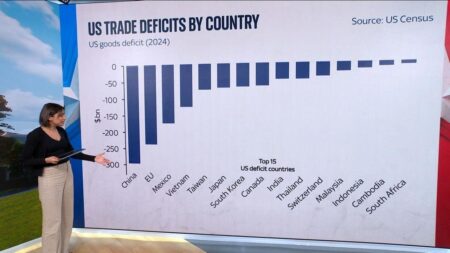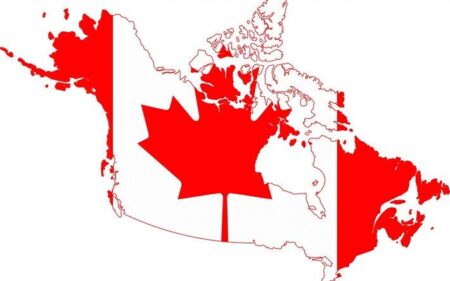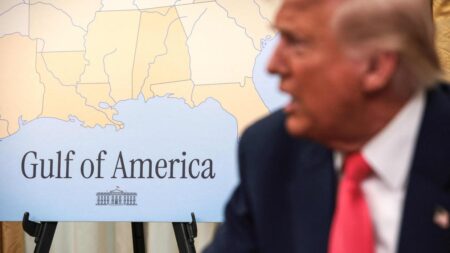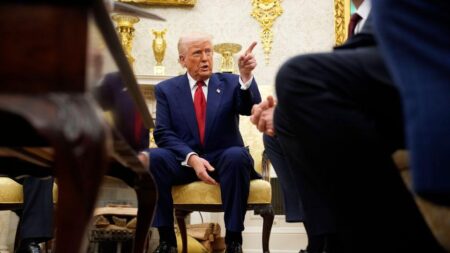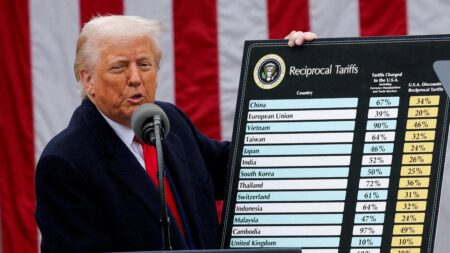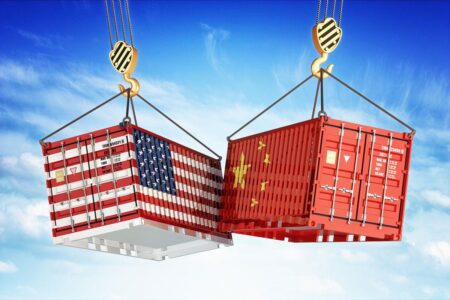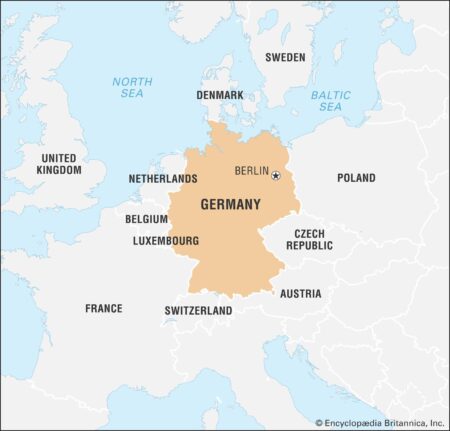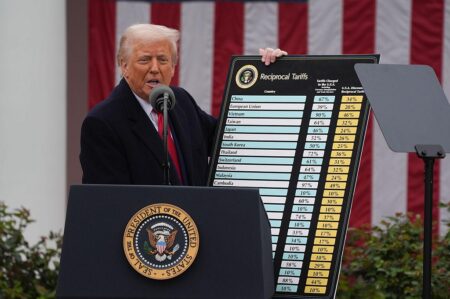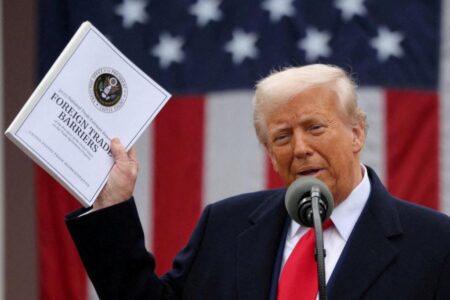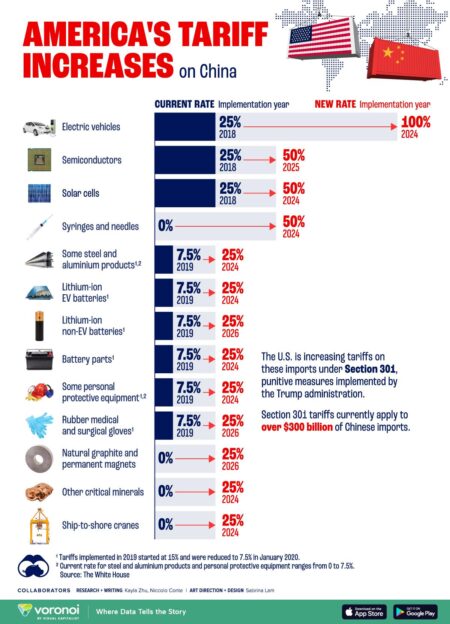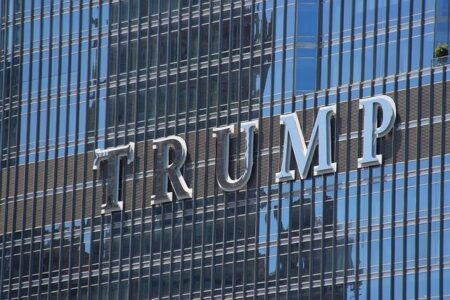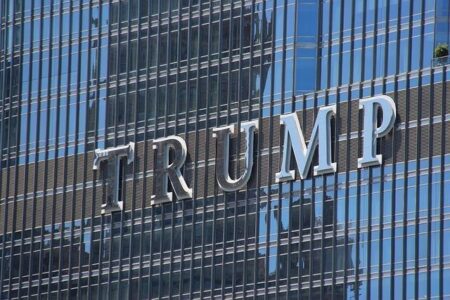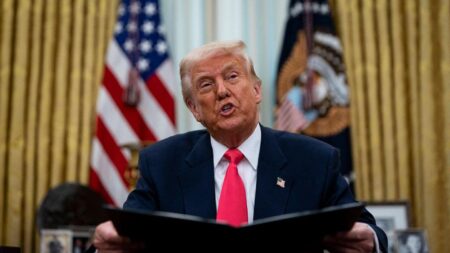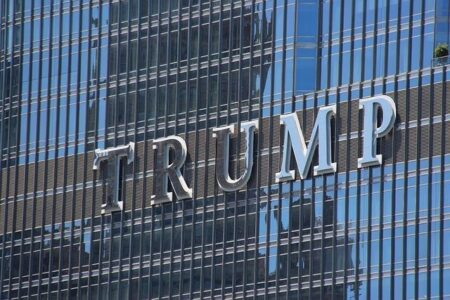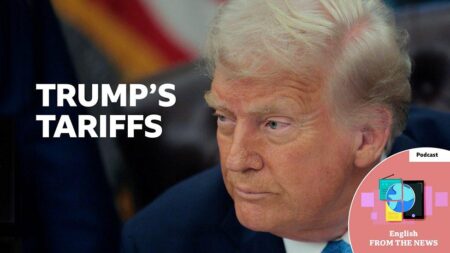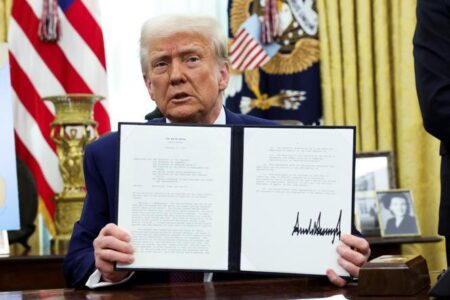As the US-China tariff war escalates, iPhones, Shein apparel, and toys emerge as top-traded items facing potential price hikes. Analysts warn that increased tariffs could burden consumers, reshaping spending habits and impacting the retail landscape.
Browsing: import taxes
Trump’s proposed 20% tariff on European imports looms large over Italian wine exports, threatening to disrupt a key market. As U.S. consumers face higher prices, industry experts warn of potential long-term impacts on producers and the overall economy.
In response to the U.S. imposing tariffs on Canadian auto imports, Canada has announced reciprocal measures aimed at protecting its automotive industry. The move escalates trade tensions, as both nations confront the growing impact on their economies.
In a recent escalation of trade tensions, Trump’s proposed tariffs on Chinese goods are set to significantly impact ‘Main Street’ U.S. businesses that rely on Amazon. Experts warn that increased costs could crush small retailers struggling to compete.
In a bold economic maneuver, President Trump has initiated sweeping tariffs against China, igniting a trade conflict with implications that could reverberate throughout the global market. Analysts warn this battle may stretch U.S. resources thin, challenging American competitiveness.
Reciprocal tariffs imposed by the Trump administration, alongside additional levies on Chinese imports, officially took effect today. These measures aim to address trade imbalances, but concerns rise over their potential impact on economic relations and consumers.
China has announced a 34% tariff on various U.S. imports in response to recent trade policies, escalating tensions between the two economic powerhouses. Analysts warn this move could further strain bilateral relations and impact global markets.
Germany and France are advocating for a stronger tariff response to protect their industries from global market fluctuations. Their push reflects growing concerns over international trade practices, aiming to bolster domestic economies amid rising competition.
Former President Trump’s proposed 24% tariff on Japanese imports could significantly affect camera and lens prices in the U.S. Market analysts warn that this policy may lead to increased costs for consumers, disrupting the photography industry supply chain.
President Trump’s recent tariffs have surpassed initial expectations, prompting significant economic implications. Key takeaways include heightened consumer prices, strained international relations, potential job losses in key sectors, and unpredictable market reactions.
In a significant trade move, President Trump has announced plans to impose a 24% tariff on imports from Japan, with a minimum 10% tariff affecting all countries. This decision aims to address trade imbalances and protect domestic industries, raising concerns among global trade partners.
In a sweeping move, former President Trump’s new trade order imposes tariffs of at least 54 percent on Chinese imports. This escalation in trade tensions could significantly impact U.S.-China relations and global markets. Stakeholders are bracing for potential economic repercussions.
Japan has issued a warning regarding the potential “significant impact” of impending U.S. tariffs on its economy. Officials express concerns over disrupted trade relations, which could affect sectors ranging from manufacturing to agriculture, emphasizing the need for dialogue.
In a recent statement, former President Donald Trump acknowledged a “very good relationship” with India but expressed concerns over trade practices. His comments on tariffs highlight ongoing tensions as both nations navigate complex economic dynamics.
In a bold move, former President Donald Trump threatened to impose a staggering 200% tariff on French wine and champagne if he returns to office. This escalation in trade tensions raises concerns over the future of U.S.-France relations and global markets.
In a significant move, President Trump announced the postponement of tariffs on goods imported under the US-Mexico-Canada trade agreement. This decision aims to ease trade tensions and foster better economic relations among the North American partners.
In a recent statement, Donald Trump announced a temporary halt on imposing new tariffs, underscoring their strategic importance in trade negotiations. While he recognizes their potential economic impact, he emphasizes that tariffs remain a critical tool for policy leverage.
Trump’s tariffs have ignited a wave of anger and retaliation among trading partners, fueling market unease. As nations respond with their own tariffs, analysts warn of potential disruptions in global trade and the economic ramifications that could follow.
Starting Tuesday, Trump’s tariffs on imports from Canada and Mexico will take effect, affecting a range of goods. Consumers could see rising prices on products such as steel, aluminum, and certain food items as costs increase along the supply chain.
Former President Trump announced that tariffs on imports from Canada and Mexico will proceed, indicating potential for additional taxes in the future. The announcement underscores ongoing trade tensions as negotiations continue between the nations.


